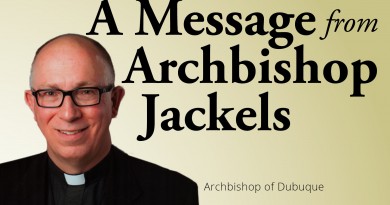After lockdown, Italy’s bishops to seek new ways to engage parishioners
By Carol Glatz
Catholic News Service
VATICAN CITY (CNS) — Italy’s bishops will need to help their communities participate more in parish life and return to taking part in the sacraments in ways that continue to respect evolving measures to contain the spread of the coronavirus, according to their conference leadership.
After summer vacations end and autumn begins, the bishops are invited to “work together in order to create the conditions for being open to new forms of the church’s presence,” said a letter sent to the nation’s bishops.
[swpm_protected]
The letter was drafted by the leadership committee of the Italian bishops’ conference, and excerpts were published on its website July 23.
When Masses were once again open to the public starting May 18, there was a noted lack of attendance by families with young children, teenagers and older parishioners, the letter said.
Parishes will need to “listen” in order to understand what has contributed to their absence, it said.
With difficulties caused by the pandemic, there are also new opportunities, it added, praising all the priests and catechists who worked hard to maintain contact with parishioners and young people, particularly online.
But now it is urgent they start planning new ways that respect precautions to bring people back onto a journey toward renewed community and parish life, particularly Sunday Mass, it said.
There is still a sense of people feeling a great deal of uncertainty and apprehension connected with a fear of an economic collapse later in the year and with the stress or “fatigue of active participation.”
“The question is, what contribution can we make to the nation? How to approach women and men who are more afraid, poorer and alone?”
Starting up parish activities in the fall after the summer break “will necessarily have to be gradual and still limited by measures to protect the public’s health,” it said.
A number of those measures will be determined by the country’s regions, not the national government, such as the possibility of allowing more than 200 people inside large churches and cathedrals if they can guarantee the required social distancing, it said.
The conference leadership, which has been working with the country’s national technical-scientific committee that evaluates restrictions and their changes, said it will be possible to celebrate first Communion and confirmation Masses, but baptisms will be considered on a “case by case basis” to ensure limited numbers of participants.
In Italy, these sacramental rites are typically attended by very large numbers of family members and acquaintances, resulting in packed churches. It will be best, the letter said, to make sure these celebrations are always held as a community, even if that means with limited groups of people.
Chrism oils, it added, can be administered with a piece of cotton or cloth. Restrictions had already been lifted at the end of June allowing priests to no longer wear gloves when distributing Communion. Communion can still only be given in the hand, but the priest must disinfect his hands thoroughly beforehand.
No decision has yet been made, it said, about the return of choirs and singing.
Cover image: Brides wearing wedding dresses hold a flash mob near Rome’s Trevi Fountain July 7, 2020, to protest the postponement of their weddings due to the coronavirus pandemic. Italian bishops are being asked to consider ways to reach parishioners for fall programs during phase three of pandemic reopening. (CNS photo/Yara Nardi, Reuters)
[/swpm_protected]
[swpm_login_form]




